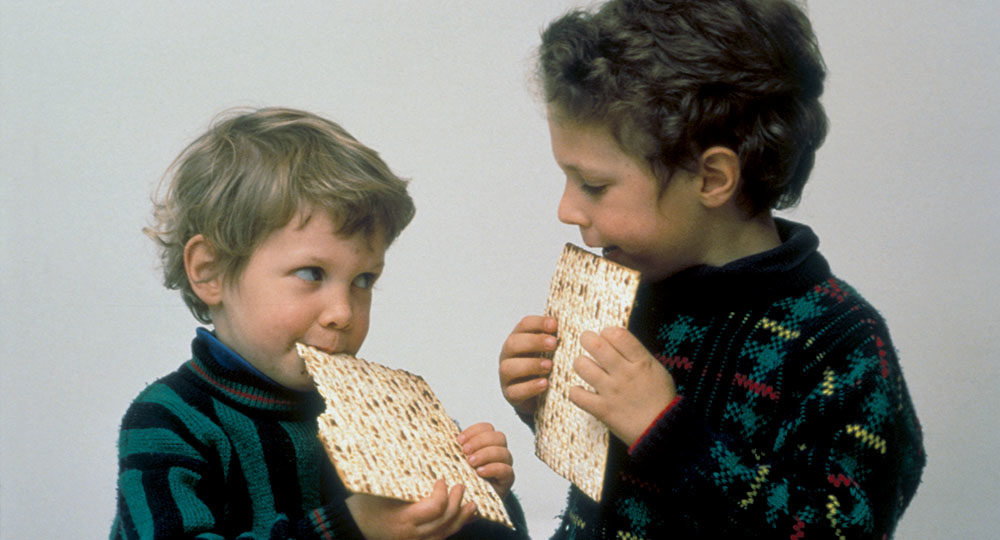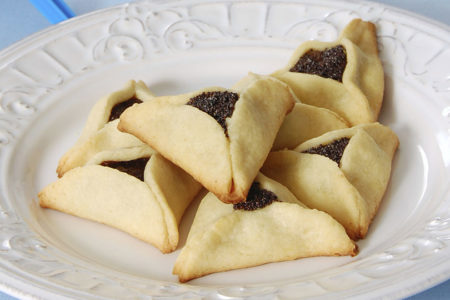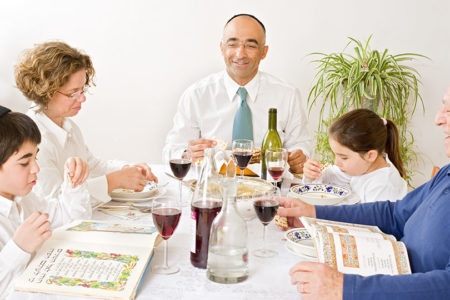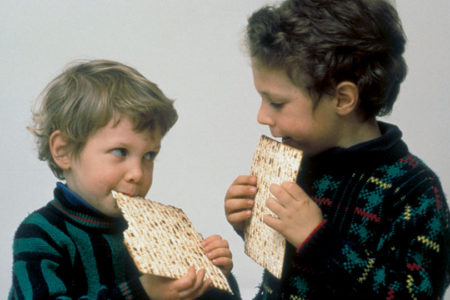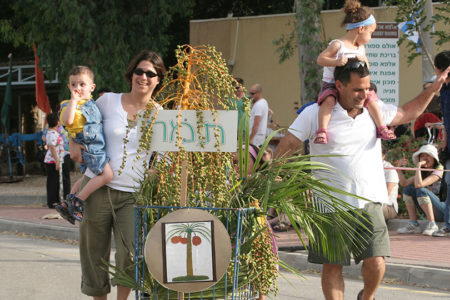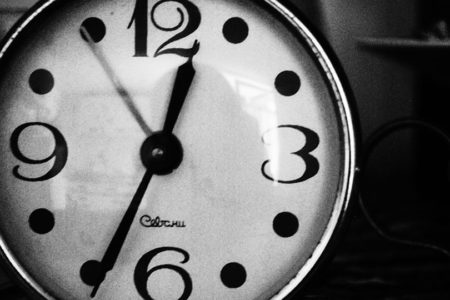Be Ye Holy: The Feast of Unleavened Bread
But, as he who hath called you is holy, so be ye holy in all manner of life, Because it is written, Be ye holy; for I am holy (1 Pet. 1:15–16).
Of all the feasts of Israel, none exemplifies the holy standard of living to which God calls us more than the Feast of Unleavened Bread. Instituted by God and given to the nation of Israel (Ex. 12:14–20), it is used synonymously with the festival of Passover (Lk. 22:1). Both the slaying of the Passover lamb and the Feast of Unleavened Bread commemorate what God did on behalf of the people of Israel when He brought them out of the land of Egypt, from slavery into freedom (Dt. 16:1, 3).
Observance of the Feast of Unleavened Bread
In biblical days, the Feast of Unleavened Bread was observed for seven days, from the 15th of Nisan (March-April) through the 21st (Lev. 23:6). Today, Israelis and Reform Jews still keep the feast for seven days, while Orthodox and Conservative Jews observe it for eight.
The first and last days of the festival were considered holy days during which, as on the Sabbath, no work was to be performed (Ex. 12:16). Orthodox Jews today apply the work prohibition to the intermediate days of the festival as well.
All hametz (food products containing leaven) had to be removed from the home (Ex. 13:7). In order to accomplish this mandate, specific rituals were developed. The process is called nullification.
The procedure for nullification begins even before the festival arrives. It starts with a thorough spring cleaning of the home. All food products that may contain any trace of leaven are discarded. Only goods that say “Kosher for Passover” are purchased.
The next step in the process of nullification takes place on the evening of the 14th of Nisan.* Using the light of one candle, a search for leaven is conducted throughout the whole house. Any leaven found is swept up by a feather into a wooden spoon. The father then recites a prayer nullifying the leaven: “Any leaven and leavening which is in my possession and which I have neither seen, nor destroyed, nor known of, is to be as naught, and as ownerless as the dust of the earth.”
The next morning, the morning of the 14th, the prayer is stated once more as the feather, wooden spoon, and any leaven that turned up during the search are burned, thus ending the process of nullification. Jewish tradition makes allowance for a person who is away from his house and is not able to return and destroy any leaven in his possession. In that case, an individual is permitted to “annul it in his heart.”
It is important that the leaven be removed from the home before midday on the 14th because in Temple days the Passover sacrifice was slain in the late afternoon.* Since the Paschal sacrifice is not to be offered with leaven (Ex. 34:25) all leaven has to be eliminated during the morning hours.
Once the leaven has been removed from the premises, the requirement of eating only matzo (unleavened bread) goes into effect. In actuality, Jewish tradition teaches that the mandate is only to refrain from eating anything leavened. It does not demand that one eat only unleavened bread. Therefore, one may eat fruit and vegetables instead of matzo. The only exception to this is on the first night of the festival, when unleavened bread only must be eaten.
The biblical commandment of not eating anything leavened during the Feast of Unleavened Bread was of such gravity that God declared that anyone who disobeyed would be “cut off from Israel” (Ex. 12:15, 19). Because of the severity of this penalty, during the festival ultra-Orthodox Jews today eat only matzo that has been “guarded”—watched continually, from the time the grain is cut until the dough is put into the oven, to ensure that no fermentation has taken place.
The Feast of Unleavened Bread and Prophecy
Prophetically, the Feast of Unleavened Bread has import to both the First and Second Comings of the Messiah, Jesus of Nazareth.
The Bible tells us that prior to the Last Supper, two of the disciples were sent ahead to “prepare that [Jesus] mayest eat the passover” (Mk. 14:12). Part of that preparation likely included a confirmation that all leaven had been removed from the house where they were going to keep the festival, as well as the assurance that a freshly baked supply of unleavened bread was on hand. It was that unleavened bread that Jesus took during the Passover meal. “And when he had given thanks, he broke it, and said, Take, eat; this is my body, which is broken for you: this do in remembrance of me” (1 Cor. 11:24).
The symbolism is clear. In Jewish teaching, leaven is representative of “the evil impulse of the heart.”* In applying the picture of unleavened bread to His own body, Jesus was saying that His life contained no evil, no sin (a necessary requirement for the Messiah, Isa. 53:9).
After the Second Coming of Jesus, when His Millennial Kingdom has been established, the Passover, or Feast of Unleavened Bread, will continue to be observed (Ezek. 45:21–24), perhaps as a memorial of the finished work of Christ and, as with the redemption from Egypt (Dt. 16:3), as a memorial of Israel’s redemption from the nations (cp. Jer. 16:14–15; Ezek. 20:40–41).
Lessons from the Feast of Unleavened Bread
Historically, the Feast of Unleavened Bread was given to the nation of Israel and should be interpreted as such. First, God redeemed them, as pictured in the Passover sacrifice. Next, God separated them, making them a holy people unto Himself (Ex. 19:5–6), as pictured by the Feast of Unleavened Bread. However, although the Feast of Unleavened Bread belongs to Israel, the lessons from it can also be applied to the Church.
1. Be sure all leaven has been removed before partaking of the Lord’s Supper.
In speaking of the Lord’s Supper, the Apostle Paul wrote, “But let a man examine himself, and so let him eat of that bread, and drink of that cup” (1 Cor. 11:28). Just as the Jewish home is searched before the Passover dinner for any traces of leaven, so too the Christian should search or examine his heart before the communion service for any unconfessed sin that may be hindering his fellowship with God. Just as the leaven is destroyed and annulled in a person’s heart, so too the Christian should annul or confess his sin to God (1 Jn. 1:9) so that he may partake of the Lord’s Supper in a worthy manner, remembering the sacrifice of the Passover Lamb, Jesus Christ, and “the day when [he] camest forth out of the land of Egypt” (Dt. 16:3), the day of his redemption from sin.
2. The local church needs to function as unleavened bread, giving no room for the presence of leaven.
In 1 Corinthians 5, the Apostle Paul berated the church in Corinth for tolerating one in their midst who was committing fornication with his father’s wife (v. 1). In his chastisement, Paul used the Passover and the Feast of Unleavened Bread as an illustration of how the local church should operate.
“Your glorying is not good. Know ye not that a little leaven leaveneth the whole lump?” (v. 6). Using the same adage used in Galatians 5:9, Paul identified a prime cause of unhealthy church life. If you allow a little sin to ferment in your church, and it is not biblically dealt with, you may be sure that the effects of that sin will permeate the entire local assembly.
Jewish tradition does not allow for even a tiny bit of hametz (leavened product) to be present on Passover. It is taught that the corrupting influence of leaven is so powerful and pervasive that if a small bit of hametz is mixed in with a lump of unleavened dough one thousand times its size, the whole batch is forbidden and thrown out.*
In the same way, Paul declared that when sin is not properly dealt with in a local church—when it is excused, overlooked, or swept under the rug—it will not go away. In reality, the opposite takes place. It grows and festers like leaven until the whole church is soured and spoiled.
“Purge out, therefore, the old leaven, that ye may be a new lump, as ye are unleavened. For even Christ, our passover, is sacrificed for us” (1 Cor. 5:7). As in the process of nullification, the solution to a sin problem within a church is separation, removal (vv. 2, 13). One reason for this seemingly harsh treatment, this “tough love” of the unrepentant offender, is our position in Christ. Because we are redeemed by the blood of Christ, our Passover, and that redemption provides for us a standing before God that is without sin (“unleavened”), the Church is expected to live out that high calling and function accordingly. Paul explained how to do this in 1 Corinthians 5:8: “Therefore, let us keep the feast, not with old leaven, neither with the leaven of malice and wickedness, but with the unleavened bread of sincerity and truth.” Paul was not suggesting that the local church should literally observe the Feast of Unleavened Bread, as in Old Testament days. Rather, he was saying that we should celebrate our redemption in Christ in a manner commensurate with our “unleavened” position—not with behavior characterized by evil, but in a manner marked by sincerity and doing what is right.
If a local church truly functions in this way, the Feast of Unleavened Bread will become more than just another example of Old Testament ritual and ceremony. To those who are “a chosen generation, a royal priesthood, an holy nation” (1 Pet. 2:9), it will become a recognizable, living reality of what God intended when He said, “Sanctify yourselves therefore, and be ye holy; for I am the LORD your God” (Lev. 20:7).
